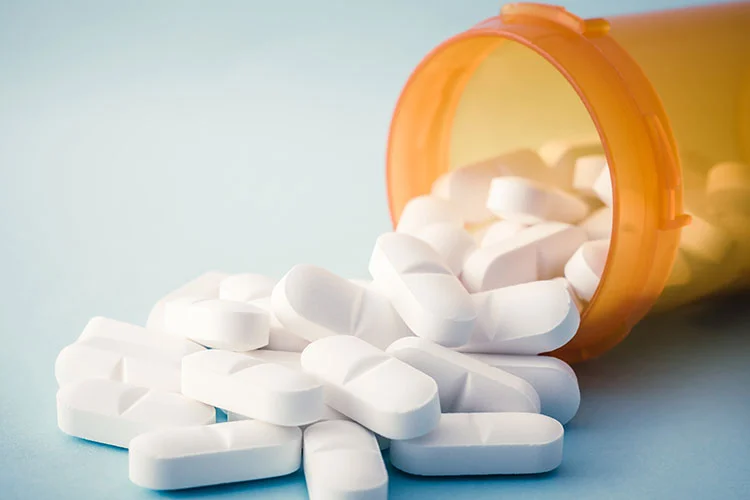Breaking News
Fake Drugs on Social Media: Nigerians Suffer Blindness, Kidney Failure, and Stroke from Counterfeit Medicines
Rising healthcare costs are pushing Nigerians to buy drugs on Instagram, WhatsApp, and Facebook—leading to blindness, kidney failure, strokes, and deaths. Experts and NAFDAC warn of a growing public health crisis.

As healthcare costs rise and drug shortages persist, millions of Nigerians are turning to social media for cheaper alternatives—often with devastating consequences. Patients are going blind, suffering strokes, kidney failure, and even death after consuming unregulated medicines sold online.
What began as a matter of convenience has now spiraled into a silent health epidemic—unfolding not in hospitals, but through Instagram feeds, WhatsApp groups, and Facebook posts.
The lure of quick cures
From herbal detox teas and cancer “remedies” to eye drops and diabetes pills, a vast range of products is marketed online without prescriptions or medical oversight. Aggressive adverts promise fast results, backed by unverifiable testimonials. But public health experts warn this unregulated digital drug bazaar is a ticking time bomb.
“Every day, we see patients in critical condition because they abandoned their prescribed medications for miracle cures,” cardiologists cautioned. Many of these counterfeit products contain steroids, caffeine, or diuretics that dangerously interact with prescribed drugs.
Victims speak out
- Amaka, 23, bought Instagram-promoted eye drops that initially worked “like magic,” but within weeks left her with dangerously high eye pressure. “One more month and her sight could have been permanently gone,” her doctor warned.
- Victor Aham regretted spending money on fake “herbal eye cleansers” that did nothing.
- Chinyere Ogbue lost over ₦40,000 on teas and devices advertised to “clear eyes within two weeks.” None worked.
- Joana, 52, ditched her hypertension drugs for a Facebook herbal mix. She collapsed at her Lagos stall and was diagnosed with a stroke.
- Temitope, 34, developed kidney injury after drinking influencer-promoted detox tea.
- Chinedu Ibe, 28, died from heart complications after taking stimulant-laced capsules purchased via WhatsApp.
- Mama Biodun, 60, was hospitalised with kidney failure after replacing her prescriptions with TikTok-advertised “permanent cures.”
These tragic cases are becoming alarmingly common. Findings show at least five Nigerians collapse every week from unregulated herbal products.
Experts sound alarm
Medical experts warn there are no shortcuts to managing chronic illnesses.
- Dr. Usman Yahaya Umar (AKTH) stressed that “patronising roadside vendors and self-medicating without tests can worsen illness or lead to death.”
- Dr. Femi Olaleye (Optimal Cancer Care Foundation) revealed patients have lost vision from counterfeit drops, urging Nigerians to buy only from licensed pharmacies.
- Dr. Gloria Okoekhian-Ogulu (Nigerian Optometric Association) noted that many eye conditions mimic each other, and wrong treatment often leads to “irreparable vision loss.”
- Pharm. Olumide Akintayo (former PSN president) warned: “Bypassing pharmacists makes patients extremely vulnerable to side effects, drug interactions, and even death.”
- Dr. Saheed Babajide (NMA Lagos) called online drug sales “illegal and life-threatening,” urging NAFDAC to clamp down on social media adverts.
Regulators respond
NAFDAC’s DG, Prof. Christianah Adeyeye, admitted the challenge is growing, but said the agency is monitoring Instagram, Facebook, Jumia, and Konga. Offenders face fines from ₦200,000 to ₦5 million, facility shutdowns, and arrests. Tools like Scan2Verify and the NAFDAC Green Book are being rolled out to help consumers check authenticity.
Similarly, the Pharmacy Council of Nigeria is drafting new regulations to monitor online drug sales and ensure only licensed platforms with physical presence operate legally.
A hidden epidemic
Despite these measures, enforcement struggles to keep up with Nigeria’s fast-growing digital drug market. For victims like Amaka, Joana, Chinedu, and many others, the promise of cheap, quick cures has brought nothing but pain.
As Dr. Babajide warned: “What we see every day is kidney failure, strokes, blindness, and even mental illness linked to misuse of these drugs. Nigerians must stop buying medicines through social media.”
Without urgent action, experts fear Nigeria’s fragile healthcare system could face a full-blown crisis—one fuelled not by disease outbreaks, but by dangerous products sold at the click of a button.










